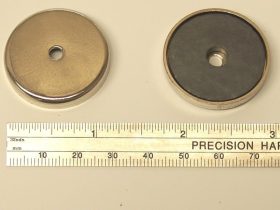Every company reaches a point where its digital tools begin to slow progress instead of supporting it. Data management is no exception, especially when operations rely on outdated or limited virtual data rooms. These signs are subtle at first but can eventually disrupt productivity and compliance. Let’s explore the key indicators that signal when it’s time to upgrade.
Slower Access and Inefficient Data Retrieval
A clear warning sign appears when users struggle to find or open files quickly. Platforms such as https://data-room.co.uk/due-diligence-data-room/ demonstrate how advanced systems can improve accessibility and organisation. Modern data rooms offer instant file indexing and full-text search to locate information across thousands of records. When your team wastes time on manual searching, performance and collaboration both decline.
Delays in access can also affect business confidence. If it takes too long to retrieve contracts, reports, or transaction data, projects may lose momentum. Upgrading to a platform with faster indexing and metadata tagging may help improve efficiency. This change also aids in maintaining a structured archive that meets audit and compliance standards.
Limited Integration with Core Business Tools
Integration with communication, project management, and e-signature systems has become essential for seamless collaboration. Without these links, employees must duplicate uploads and updates across multiple tools. That repetitive work increases error risk and drains valuable time.
Modern platforms include built-in connectors that bridge CRMs, financial dashboards, and email gateways. This synchronisation keeps all departments aligned and reduces data mismatches. Information shared between teams remains consistent across connected tools. Integration may help improve coordination across departments while maintaining control of sensitive content.
Poor Security and Access Oversight
Security vulnerabilities can develop as older systems fall behind compliance standards. Missing updates, weak encryption, or outdated access controls create risk points for data leaks. Advanced data rooms provide multi-layer verification, strict permission frameworks, and activity logs to detect irregular actions. These tools protect sensitive records across internal and external collaborations.
A new data room platform records user activity, permissions, and file versions in one dashboard. This centralised tracking helps with spotting issues early and maintaining accountability. Businesses dealing with regulated information need this precision to uphold credibility and trust.
Difficulty Managing Large-Scale Transactions
As operations expand, data volume and user numbers grow rapidly. A limited platform can cause instability when managing complex projects such as mergers, acquisitions, or audits. An advanced data room handles large uploads, high concurrency, and diverse file formats without delays. This ensures consistent performance even when multiple stakeholders work simultaneously.
- High-capacity servers support simultaneous access.
- Automated backups maintain continuity during updates.
- Smart indexing aids in categorising large datasets efficiently.
- Custom folder templates standardise project organisation.
Upgrading guarantees that large transactions can progress without interruptions or manual bottlenecks. The difference lies in how effectively data flow can keep pace with operational growth.
Outdated User Interface and Poor Collaboration
Older systems can feel rigid and unintuitive, leading to frustration and reduced adoption. A dated interface limits file preview options, comment functions, and live collaboration features. When teams cannot review or annotate documents directly, communication becomes fragmented. Modern systems encourage interaction within the same platform while preserving record integrity.
Collaboration tools now include chat panels, Q&A modules, and annotation layers for live discussion. Each action is tracked for reference, ensuring all feedback remains visible and accountable. A clear, organised design helps participants work with fewer delays and miscommunications. Upgrading to an advanced data room may help teams achieve faster project completion and stronger cohesion.
Recognising the signs early can prevent costly disruptions in information management. The premium due diligence data room features, such as automation, integration, and layered security, help with both compliance and efficiency. When current systems slow performance, an upgrade ensures data control and workflow consistency remain aligned with business goals.









Leave a Reply